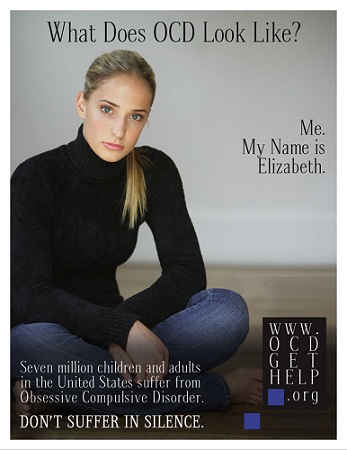When Elizabeth “Liz” McIngvale was just 12 years old, she realized something was wrong. She was unable to leave her own house without washing her hands multiple times, getting undressed and dressed again, or avoiding stepping on cracks in the floor.
Within a year she was diagnosed with Obsessive-Compulsive Disorder (OCD) so severe that doctors said it may be untreatable. OCD is a mental disorder in which the brain has problems processing information correctly, leading to obsessive thoughts, fears of contamination, hoarding and endless rituals such as repetitive counting, checking and actions.
However, Liz refused to be held back by her disorder and its attempts to control her life, so she sought treatment. After two stays at the Menninger Clinic, she gained hold of her life again and made it her mission to finish high school.
Liz’s determination to finish school made her want to fight her OCD as much as possible to accomplish her goals. She indeed graduated, and has even gone on to earn her Master’s from Loyola College in Chicago, and most recently her PhD from the University of Houston in her hometown. She hopes to continue to help people through therapy and advocacy, providing care for people who, otherwise, have no access or cannot afford it. Throughout high school and college Liz was the first national spokesperson for the International OCD Foundation, telling her story and also trying to help remove the stigma associated with mental illness and OCD.
Today, Liz has her own non-profit organization, Peace of Mind, to help provide hope and help to those suffering from OCD, as well as an interactive self-help website called OCDChallenge that allows people with OCD learn how to challenge themselves and overcome their anxiety. To ensure that she able to assist as many people as possible, Liz also works with Adversity2Advocacy Alliance, a group of people who have overcome their adversities to become advocates for other people in their similar situations. Liz’s disorder may have complicated her life previously, but she now uses it as a tool to help others and to support the OCD community as much as possible.
If you are suffering from OCD, she wants you to know that “…with proper care and treatment, there is help and hope” and to try and find your “greater goal outside of OCD”. A strong support system can greatly affect the outcome of treatment, if you are living with someone with OCD or know someone who struggling with the disorder. Email the Peace of Mind organization for help at Christine@PeaceofMind.com or take a look at the International OCD Foundation website to find additional resources. You can overcome anything you set your mind to!


No comments yet.